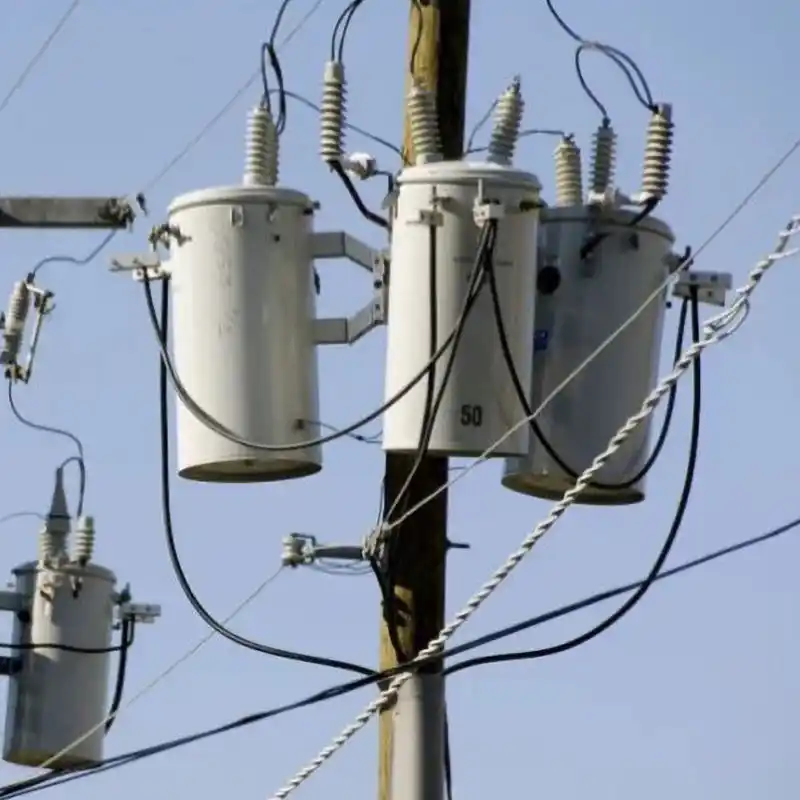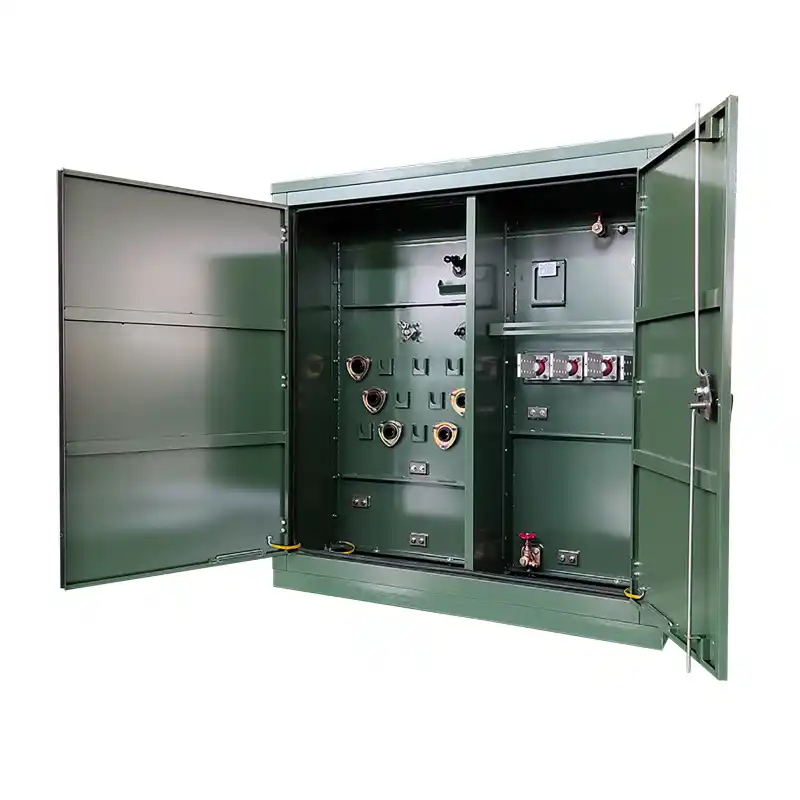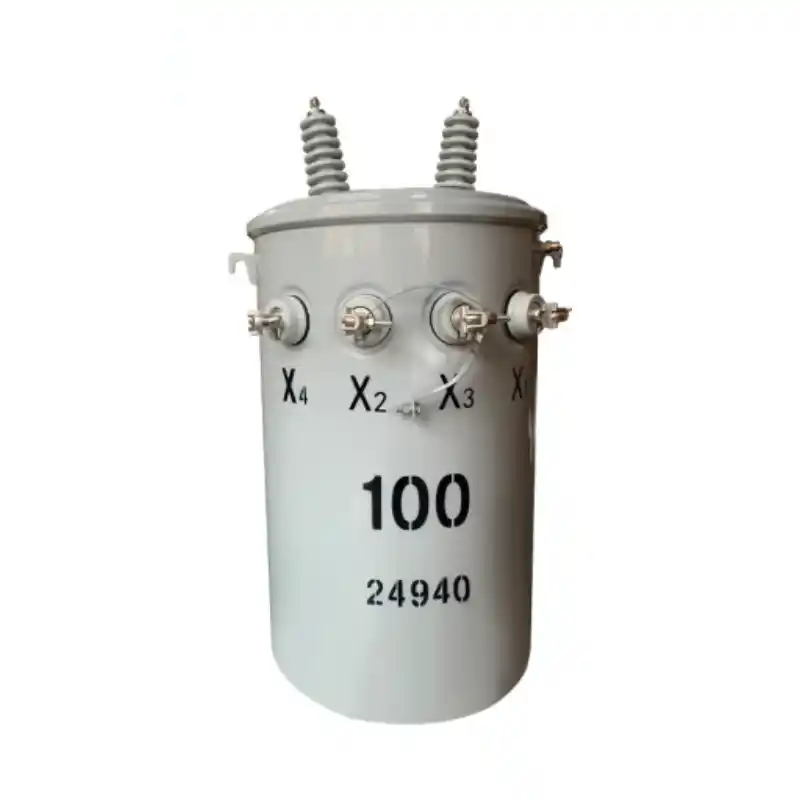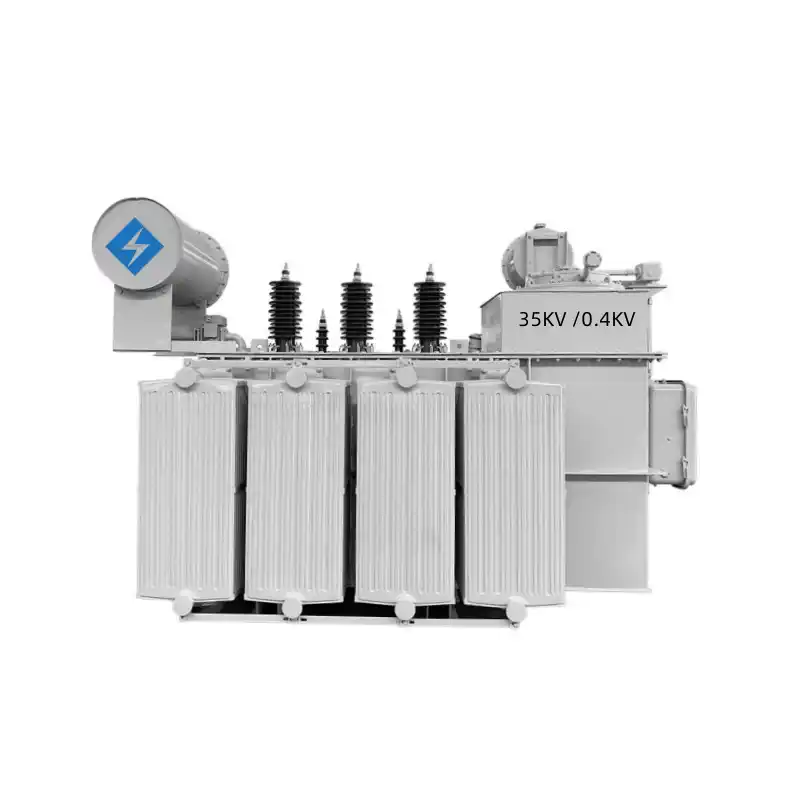What is a Distribution Transformer?
Distribution transformers are key equipment in the power distribution system. Their main function is to convert high-voltage electricity into lower voltages to meet the power needs of homes, businesses and commercial buildings. When electricity is transmitted from the substation, the voltage is usually between 4,000 and 36,000 volts. The distribution transformer steps it down to the service voltage required by customers, usually 110V to 240V. This not only ensures the safety of the electricity, but also makes it suitable for different types of users. These users usually share a transformer, which is the last link in the power transmission network and reduces the high voltage used in the distribution line to the safe voltage level required by users.
For large industrial and mining companies, their power demand is higher and usually requires voltages above 240V. Most of these companies commonly require a voltage of 480V to meet the operating needs of heavy industrial plants and equipment. Therefore, distribution transformers play a vital role in the power system to ensure the efficient and safe distribution of electricity according to the needs of different users.
Learn for free:1000KVA 11KV/0.4KV Oil Type Distribution Transformer
Working principle of distribution transformer
The internal structure of the distribution transformer is mainly composed of two sets of coils and an iron core. The two sets of coils are primary coils and secondary coils. The primary coil is connected to a high-voltage power source from the grid, while the secondary coil is responsible for outputting low-voltage power to homes and businesses.
When current passes through the primary coil, it creates a magnetic field around the core, which induces a current in the secondary coil. This process, called electromagnetic induction, allows the transformer to convert voltage while maintaining power. The core is usually made of stacked silicon steel sheets with high magnetic permeability, which can concentrate the magnetic field, improve the efficiency of the transformer and reduce energy loss.
The importance of distribution transformers
1. Ensure safety
It would be very dangerous to directly send high-voltage electricity to homes and businesses without distribution transformers. Distribution transformers effectively reduce high-voltage electricity to safe voltages, ensuring the safety of electricity use.
2. Improve efficiency
Distribution transformers can reduce energy loss during power transmission and improve the operating efficiency of the entire power system.
3. Electrical isolation
Distribution transformers also provide electrical isolation to protect the distribution system and its users from electrical faults. For example, distribution transformers can isolate fluctuations in ground potential to prevent electric shock accidents.
4. Stable power supply
By stabilizing the voltage, the distribution transformer ensures the normal operation of household and business equipment, avoiding equipment damage and downtime caused by unstable voltage.
Types of Distribution transformer
1. Pole mounted transformer

2. Pad Mounted Transformer
The pad mounted transformer is directly mounted on a concrete pad or pad foundation. By using the direct buried cable method, it can replace the traditional pad-mounted transformer, so that the wires are buried underground to avoid the risk of corrosion or breakage. Pad-mounted transformers have the advantages of small size, easy installation, simple maintenance, safe and reliable operation, and are widely used in residential areas, commercial centers, airports, factories, and mines. When installing, it is necessary to select a suitable installation location, ensure good ventilation, and connect and debug according to the manufacturer’s instructions. Pad-mounted transformers can effectively protect the internal equipment from the influence of the external environment and operate stably under high load conditions.

3. Single phase transformers
These single phase transformers are designed for single-phase electrical systems and are typically located in areas where single phase electricity is required, such as homes, small businesses, and rural areas.

4. Three phase transformer
Three phase transformers are widely used in many fields. In power plants, three-phase transformers are used to boost the electric energy generated by generators and send them to the power grid to achieve long-distance transmission of electric energy. In substations, three-phase transformers step down high-voltage electric energy to low-voltage electric energy suitable for users. Many industrial equipment require three-phase power supply, and three-phase transformers can provide stable voltage and current to ensure the normal operation of equipment. In urban power supply systems, three phase transformers are used to distribute electric energy to various areas to ensure the power supply of residents and commercial users. In rural areas, three-phase transformers help transmit electric energy to remote areas and improve rural power infrastructure. In addition, in industrial and mining enterprises, three-phase transformers are used to provide power for various large-scale mechanical equipment. These application scenarios demonstrate the important role of three phase transformers in power transmission and distribution.

Why choose Evernew Transformer
Choose Evernew Transformer as your power transformer supplier because we have more than 30 years of rich experience in transformer design and manufacturing. Our transformer products cover a variety of types from distribution transformers to 220kV high-voltage transformers, which can meet the needs of various industries and applications. Every product of Evernew Transformer strictly follows the design concept of quality, safety and reliability, and is fully tested and analyzed to ensure its
Distribution Transformer
The distribution transformers we provide have excellent safety and mechanical strength, excellent thermal stability and moisture resistance. Our distribution transformers use high-quality materials to ensure long-term reliable operation, and perform well in various environmental conditions, with more
Best 220kv Transformer
Evernew Transformer’s 220kV transformer have significant advantages in performance. Compared with other types of 220kV unit transformers, our transformers are not only more competitive in terms of cost per kilowatt, but also lighter and smaller in weight and volume per kilowatt capacity. It has a simple structure, convenient operation and maintenance, low noise, stable performance, and safe operation under partial load conditions.
Our high-voltage transformers are designed to convert voltage between different systems in series or parallel. Each transformer consists of a primary coil and a secondary coil, which are isolated by high-quality core materials, and achieve efficient transmission of electrical energy through electromagnetic induction.
Certification and Guarantee
Evernew Transformer products have obtained a variety of global certifications including UL and CE, ensuring that our transformers not only meet international standards, but also provide reliable services worldwide.
Conclusion
Power transformers are designed to increase or decrease voltage to meet different transmission needs, while distribution transformers focus on providing stable step-down services for end users. Various types of distribution transformers on the market have their own characteristics, and our products have obvious advantages in both quality and performance. If you are looking for high-quality power transformers that meet specific needs, Evernew Transformer is undoubtedly your ideal choice. With more than three decades of industry experience and a deep understanding of technology, we are committed to designing and manufacturing top-notch transformer products that exceed your expectations.

